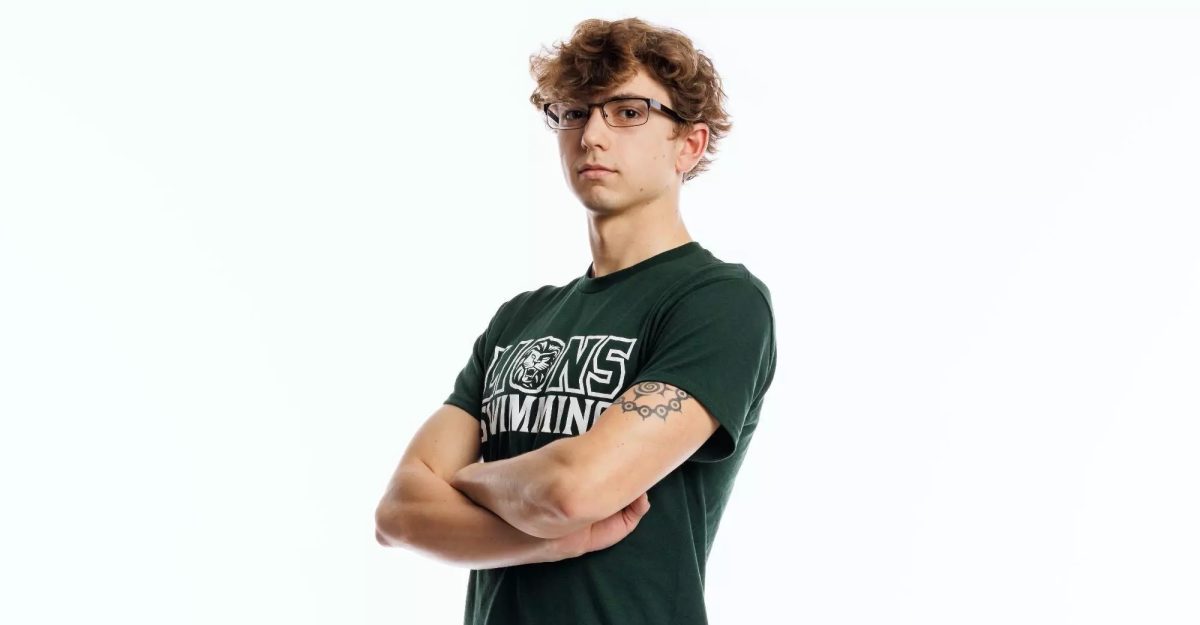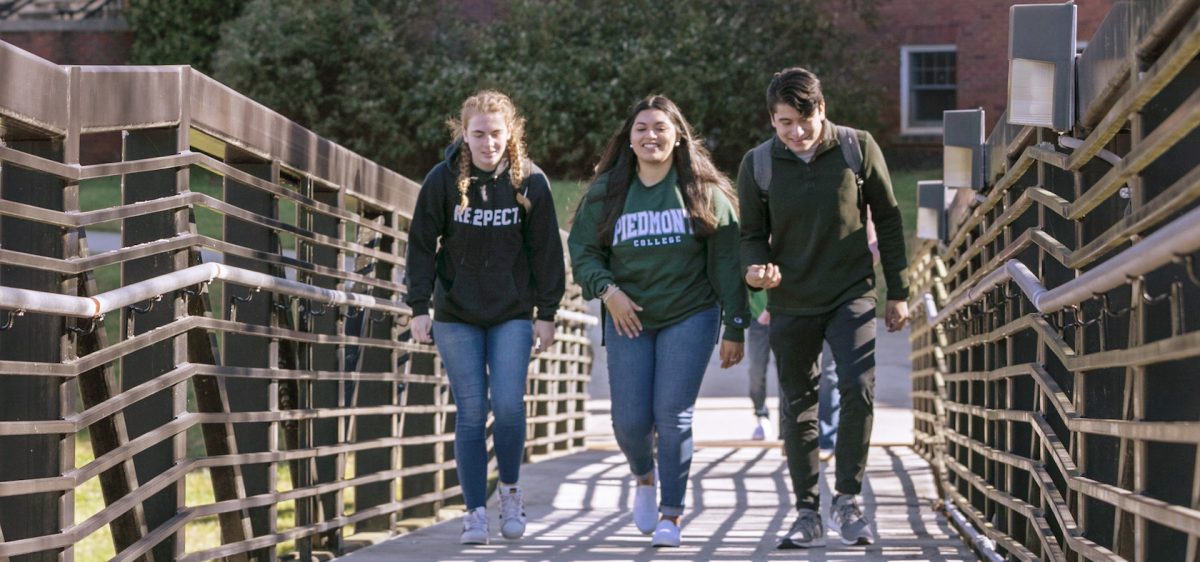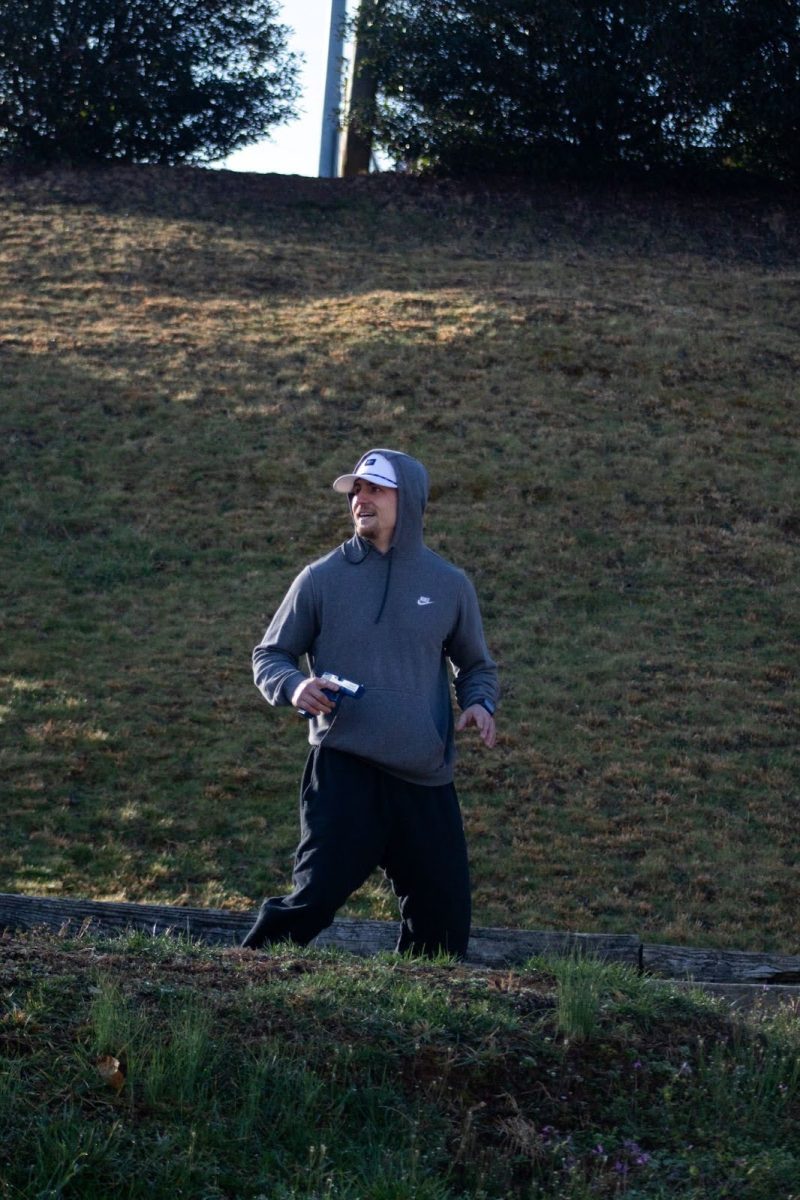by Olivia Morley and Nathan Blackburn
After clicking the submit button on their online college application, a high school student’s imagination is flooded with ideas of what their college experience will be like. Am I going to ever change my major? Will I make friends right off the bat? Will the campus ever feel like a home away from home? For the students that attend Piedmont College, the feeling of college being a ‘home away from home’ has been dwindling as each school year passes, with everyone giving a different reason as to why.
Anthony Cox, the head of the Registrar office at Piedmont, said the retention rate of the freshman class has been pretty consistent.
“Retention for the freshman group usually ranges about 68 percent to 70 percent on average,” Cox said. “There hasn’t been much deviation from that the past few years. For all students, it’s around 70 percent retention from one year to the next.”
Cox believes that making the choice to stay at Piedmont is deep rooted and personal, and depends more on what the individual wants out of their college experience, in addition to the relationships they build with the students and staff around them.
According to usnews.com, similar GA colleges, like Agnes Scott and Toccoa Falls College, have either equal or higher retention rates than Piedmont. Agnes Scott has a retention rate of 81 percent, while Toccoa Falls has a retention rate of 71 percent.
Manyi Eno is a grad student studying business at Piedmont College and has been at Piedmont for the last 6 years. When she first arrived at Piedmont, Eno described it as comfortable. She went on to describe The Grill, which was where the Commons currently is. “Everyone hung out there, people could sit and watch TV…… it was just a cool atmosphere that I enjoyed being a part of.” All in all, Eno found Piedmont to be very homey and welcoming.
Over the years Eno has been at Piedmont, the campus has changed. “Over time, it became a lot more sterile. Like a hospital.” says Eno. “The same people were there, the same cafe food and the same professors and classes, but the atmosphere changed.”
Eno believes the reason why it changed was because of administration and their want for more people and money. When Piedmont lowered its standards, people were no longer at Piedmont to thrive and learn. They were just there for college and because they could get in. “In the process, the amount of partying, theft, and carelessness increased and the overall homey feel faded.” Eno says she only stayed because of the mass communications department, but other than that, she felt like there was no other reason for students to stay.
Quinlan King, a freshman, has made the decision to leave Piedmont after his first year here. King believes that the atmosphere at Piedmont is only suited for a certain kind of student, and he just doesn’t fill that mold.
“Piedmont is very specific for what is right for someone as a college,” King said. “If you want to be a person that goes to class, gets your stuff done and then lock yourself in your room, I think that’s what a lot of people like to do here.”
King noted that whenever he tried to say hello and display an exuberant attitude to fellow students across campus, he was met with icy stares and cold judgement.
“I walk up and down the hill, and I’ll wave to people and smile at them,” King said. “They’ll look me dead in the eye, and just turn away.”
King described his bond with his lacrosse team, and said that he doesn’t get the same feeling of community from the general student population that he does from his team.
“The lacrosse team was, socially, my favorite thing about Piedmont,” King said. “I think the whole sports team, how we made a family out of it, really helped make the best out of Piedmont.”
John Mbadugha, a freshman, echoed King’s sentiments pertaining to Piedmont having a low sense of community.
“There’s definitely not a sense of unity among students,” Mbadugha said. “I’ve heard that there used to be from the upperclassmen. They said that their freshman year, it was a completely different campus, it felt more like a family environment. Everyone knew everyone, but now it’s very clique-ish.”
Mbadugha believes that the faculty may be partly to blame, as some of their rules come off a bit too strict for his liking.
“I feel like we’re a reflection of the faculty’s rules, for the most part,” Mbadugha said. “I feel like they take certain things way too seriously, like alcohol. At other colleges, you wouldn’t get in trouble for having alcoholic bottles or cans in your trash, but here it’s different here because you’d automatically get in trouble.”
“The only time you’re going to see everyone is in the café, and that’s not even everyone,” Mbadugha said. “There’s no common place that people like to hang out. Everyone’s either going to be in their room or they’re not going to be on campus. They may go to events, but there’s not many people that go to events either.”
Scooter Autry, a sophomore, attributes this in part to how the college is organized, and its slowly growing size in the student population.
“The campus has definitely gotten bigger, even before I got here,” Autry said. “The café is across campus, all of the mass comm and theatre kids are on the other side, sports fields are on the other side. A lot of class times don’t line up either.”
Autry finds that in the general education classes, there’s no need to interact with those she doesn’t already know.
“Even my common classes, I have mostly theatre kids in them because they’re taking them at the same time as me,” Autry said. “I don’t have to inter-mingle to ask people for their notes, I stick with who I know.”
Emily Pierce, a junior, had a theory of her own about the lack of community at Piedmont, and it had to do with Piedmont’s lack of one of America’s, namely the south’s, favorite pastimes: football.
“A big thing in the south is football,” Pierce said. “A lot of the schools that have a big community feeling have a football team. We don’t have that, we don’t have one single team that unites us as a college, and makes us feel like we’re Lions.”
One’s college experience is something that, if given the opportunity, one will take with them and hopefully look back on with fondness. The friends that one makes and the feeling of the college community being a like a family, especially on a smaller campus. As many students have said, this feeling has been severely lacking at Piedmont. What’s in store for the future of Piedmont, then? While many students are unsure, Mbadugha shared his thoughts on how to rebuild the sense of community at Piedmont.
“I think there’s always a way to change, especially if it wasn’t like this before,” Mbadugha said. “We could look at whatever factors that contributed to how it used to be, and maybe try to recreate those factors and recreate that environment.”













